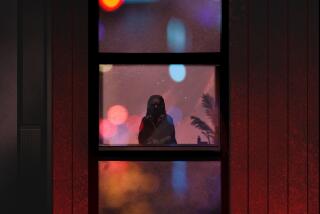Fleiss’ Lawyers Lose Bid to Argue Client Issue : Court: Issue of why police did not charge customers of alleged Hollywood madam is not worth the time, judge says.
- Share via
A judge ruled Wednesday that Heidi Fleiss’ defense attorneys cannot raise arguments about why the alleged Hollywood madam’s clients were not charged by police.
The morning ruling by Superior Court Judge Judith Champagne came in response to a bid by Fleiss’ lawyers to show that their client was the victim of selective prosecution. The attorneys said Tuesday that the names of Fleiss’ clients were revealed in earlier grand jury testimony, raising the possibility that the customers would be identified in court.
The attorneys hoped to argue that even after customers were identified, police did not pursue them.
“I find that any relevance to be derived from the enormous amount of time that would be involved in presenting all of this (evidence) is so limited that I am not going to allow that to be presented to the jury,” Champagne said.
On Tuesday, jurors watching a police videotape saw four young women walk into a Beverly Hills hotel suite on a summer night, allegedly sent there by Fleiss, for sex with undercover police officers for a price.
The four alleged prostitutes were secretly videotaped in a police sting that led to Fleiss’ arrest last year for pandering and narcotics violations, a prosecutor told jurors Tuesday.
The women were arrested after they described to the four undercover officers what sexual services they would perform for $1,500.
A number of officers swarmed into the room as the women began to undress, Deputy Dist. Atty. Alan Carter said. The women, identified as Samantha Burdette, Peggy Schinke, Brandi McClain and Kimberly Burch, were not charged.
Fleiss is charged with procuring them for prostitution in the case, which resumes testimony today.
Sammy Lee, a Beverly Hills police detective spearheading the sting, posed as a Hawaiian businessman who hired the women to “entertain” three Asian business colleagues, who were actually undercover operatives from the Los Angeles Police Department.
Soon after the four women arrived at the Beverly Hilton Hotel last year, Lee said, he took each of them into the suite’s bedroom with one other undercover officer. He then told jurors what transpired.
“Each officer asked the young lady basically for $1,500 what would they get,” Lee said under questioning from prosecutor Carter. “The answers ranged from straight sex to oral sex to what they wouldn’t do” for that price, Lee said.
Defense attorney Anthony Brooklier established in questioning that all the women were asked by the undercover agents to consent to anal sex and all refused.
“Did you want to see how far you could go with this?” Brooklier asked Lee in one of the day’s testiest exchanges. He said that when the women consented to straight and oral sex for money they already had gone far enough to be charged, and the additional sexual request was “sordid.”
“It really was for the totality of the act,” Lee said. “We would rather have a lot of ducks versus one duck. And that is strictly for presenting the case to the district attorney.”
At the end of the day, Brooklier asked Lee if he knew the four women in earlier grand jury questioning had named some of their clients.
“You know the names of these customers?” Brooklier asked.
“Yes,” Lee said.
Carter objected, saying the customers’ names--one of Hollywood’s biggest secrets--were irrelevant to the case. Champagne suspended questioning, setting the stage for today’s ruling on the objection.
Among other things, Brooklier is attempting to show that Fleiss is the victim of selective prosecution, and that the police never pursue a prostitute’s clients, even when they know who they are.
Police said Fleiss ran a sophisticated operation catering to the rich and famous, and her clients are said to include Hollywood and business leaders.
More to Read
Sign up for Essential California
The most important California stories and recommendations in your inbox every morning.
You may occasionally receive promotional content from the Los Angeles Times.












